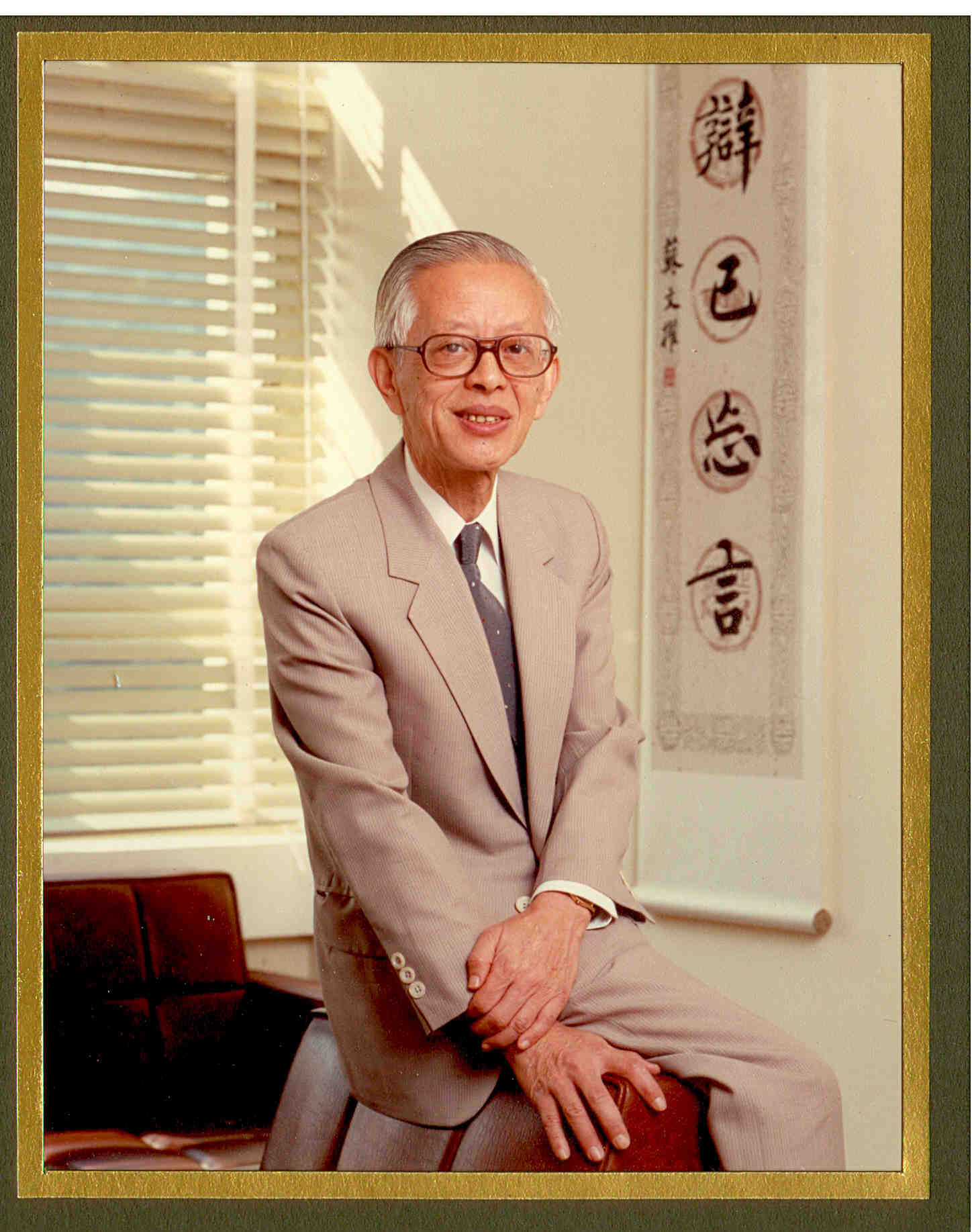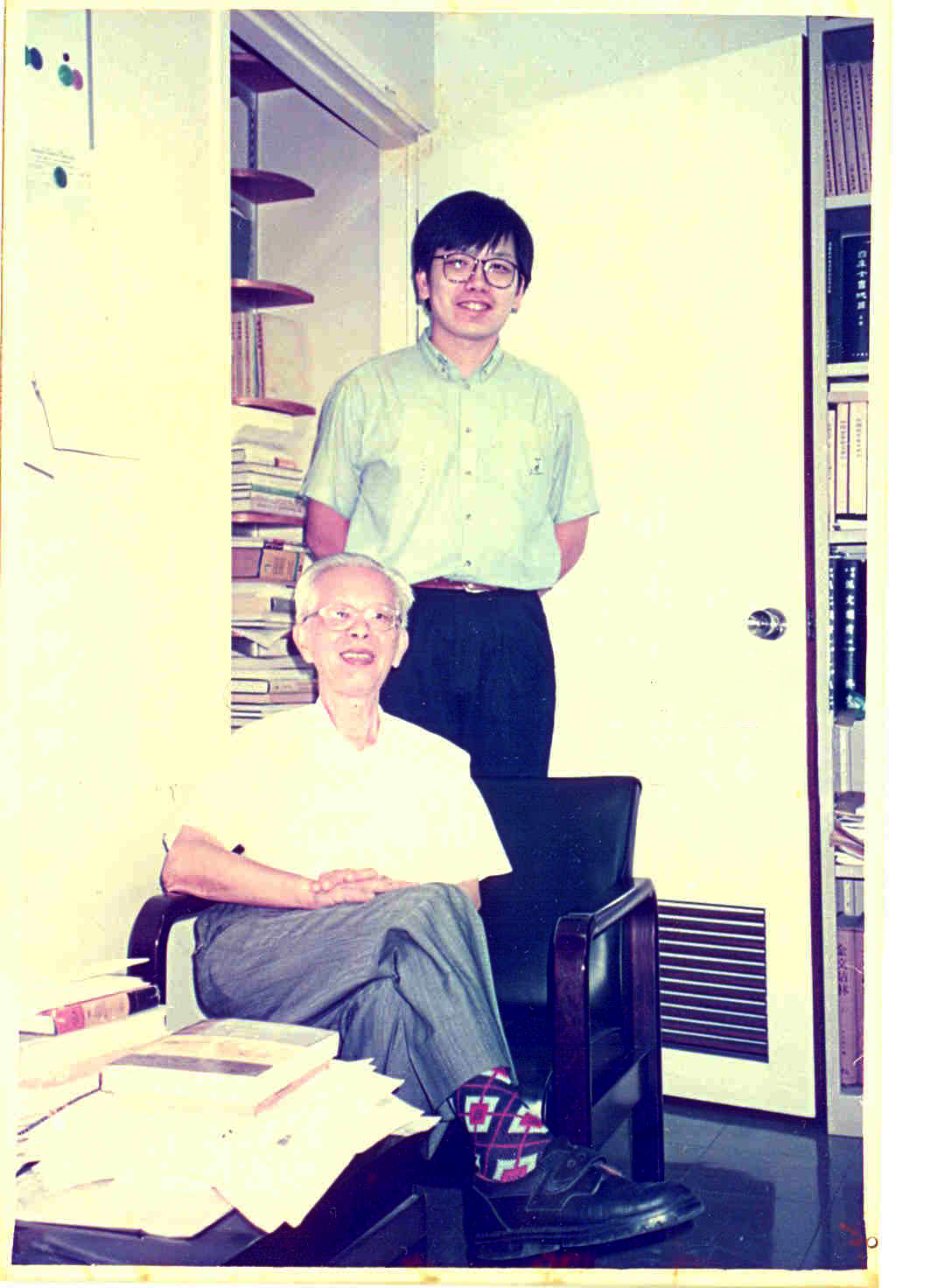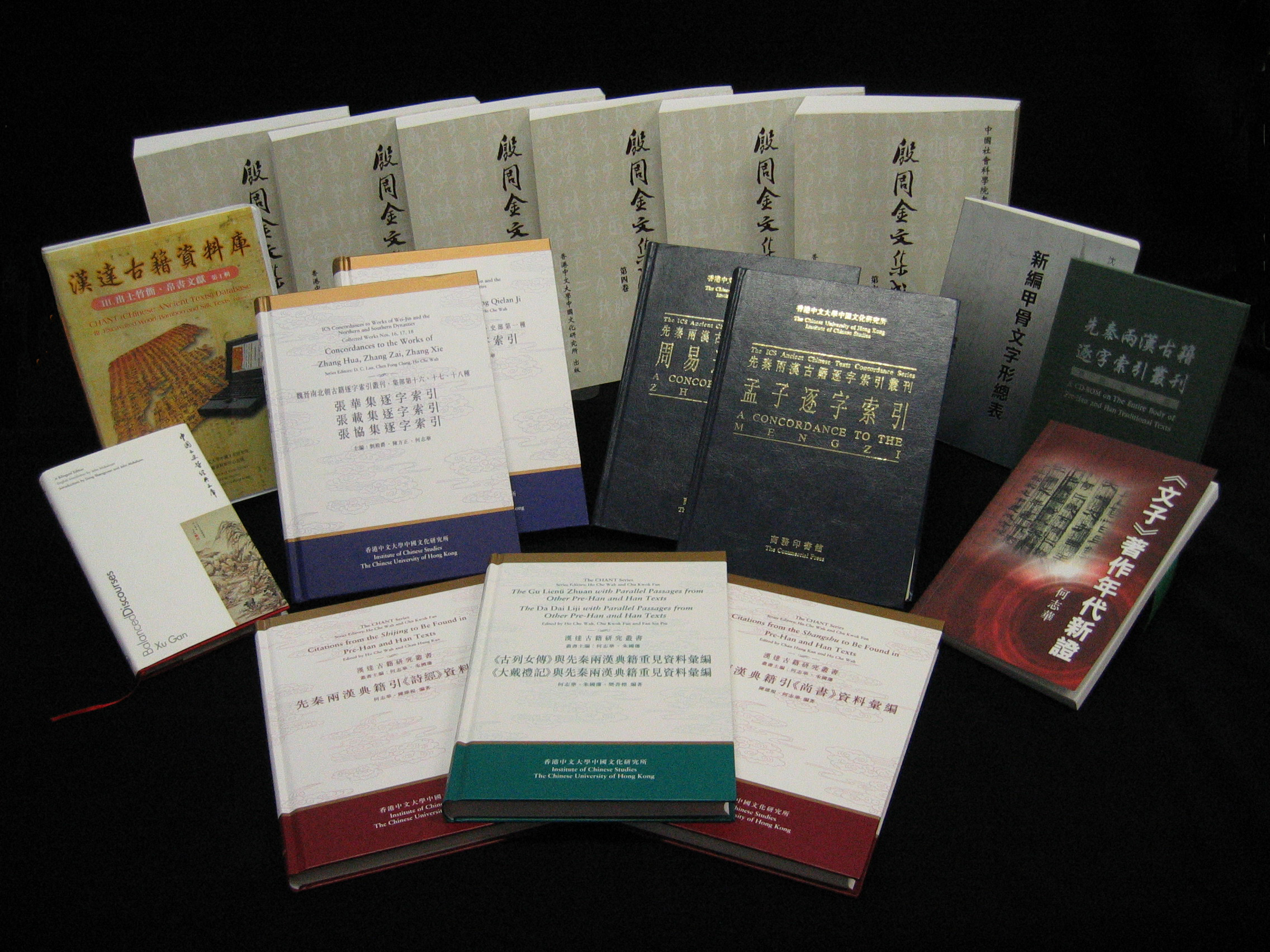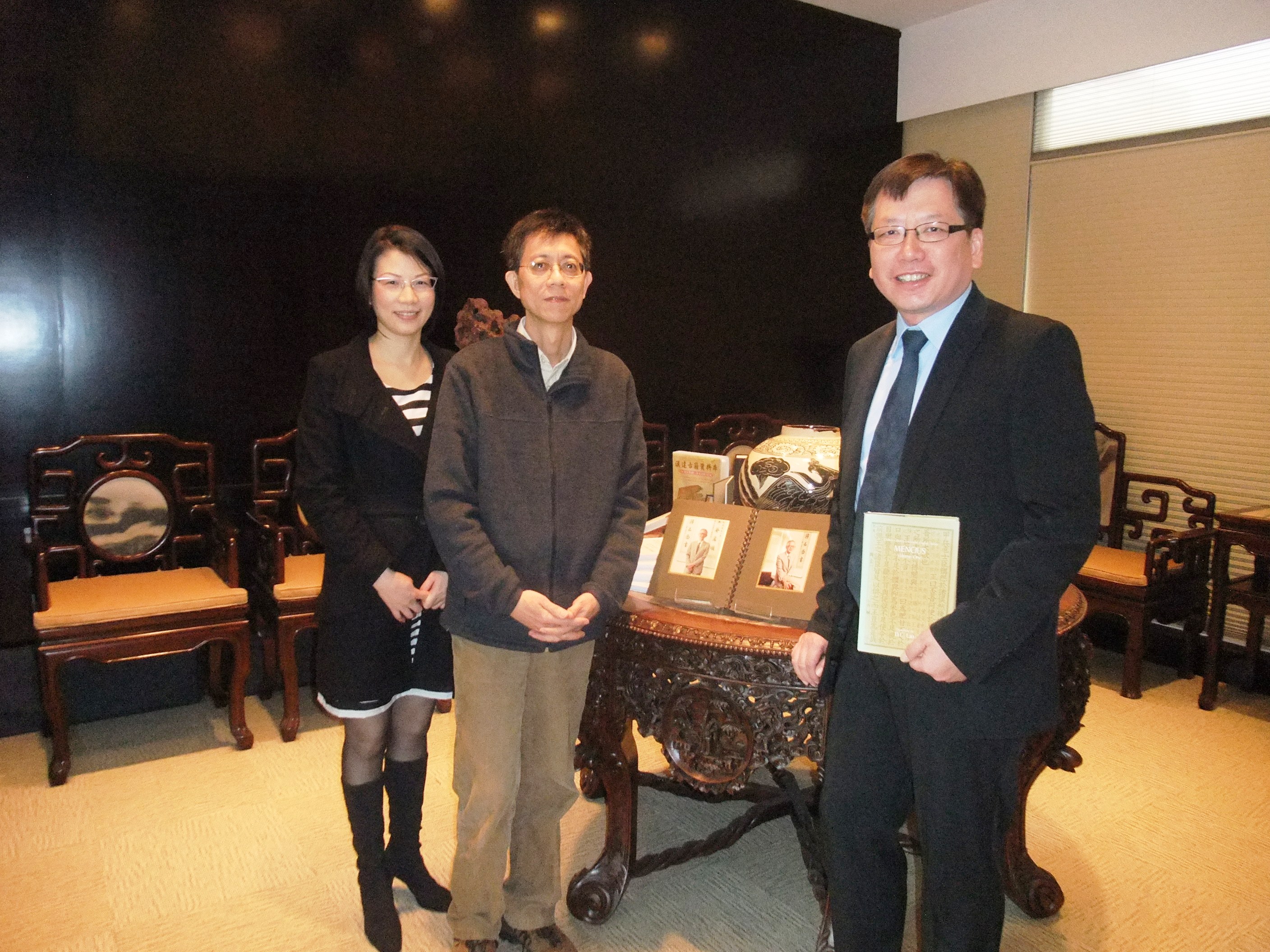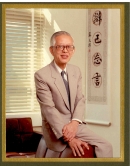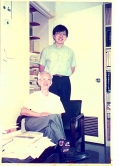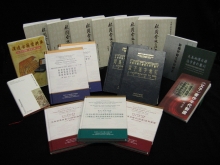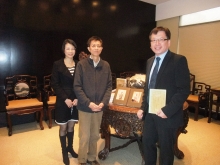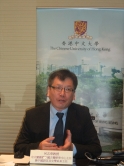CUHK
News Centre
Research Centre for Chinese Ancient Texts in Hong Kong Renamed ‘D. C. Lau Research Centre for Chinese Ancient Texts’
The Research Centre for Chinese Ancient Texts of the Institute of Chinese Studies at The Chinese University of Hong Kong (CUHK), the only facility of its kind in Hong Kong, has recently been renamed the ‘D. C. Lau Research Centre for Chinese Ancient Texts’, in memory of Professor Lau’s distinguished contribution to the world of learning. An internationally-renowned scholar of Chinese philosophy and culture, the late Professor D. C. Lau was devoted to the research of ancient Chinese texts after his retirement from CUHK Department of Chinese Language and Literature in 1989. He established the ‘Chinese Ancient Texts (CHANT) Database’, one of the largest online databases of Chinese ancient texts with high academic value in the world; and compiled The ICS Ancient Chinese Texts Concordance Series, the most important reference source for sinologists around the world nowadays. Such efforts laid a solid foundation for the Centre and further reinforced CUHK’s leading position in Chinese studies internationally. Professor Lau had named the Centre the sole beneficiary of his will before his passing in April 2010 and donated his residuary estate, comprising HK$21.36 million in cash and the royalties proceeds from his translations of Confucius: The Analects, Mencius and Lao Tzu: Tao Te Ching to the Centre.
A premier international centre of Chinese studies, CUHK has been committed to promoting world-class scholarship on China research. The forerunner of the D. C. Lau Research Centre for Chinese Ancient Texts was the CHANT Database Project that began in 1988. Being the only research centre for Chinese ancient texts in Hong Kong, it aims at building up a comprehensive electronic database of all transmitted and excavated ancient Chinese texts to facilitate research, and publishing the research results via different media. The CHANT Database is the most significant research output of the Centre. It consists of six databases, amounting to about 80 million characters. The excavated texts range from the oracle inscriptions of the Shang dynasty, the bronze inscriptions of the Shang and Zhou dynasties, to the wood/bamboo and silk scripts of the Han dynasty; the transmitted texts range from ancient texts of the Han and the Six Dynasties, to the leishu of the Ming and Qing periods. The CHANT Database is widely recognized and accessed by academics and prestigious universities. Regular subscribers include Cambridge University, Harvard University, Yale University, Stanford University, Princeton University, University of Chicago, Australian National University, Tel Aviv University, Academia Sinica, National University of Singapore and Staatsbibliothek zu Berlin. Individual subscribers come from all over the world, including mainland China, Taiwan, Europe, the US, Japan and Korea.
Professor Lau was born in Hong Kong in 1921. After obtaining his master degree, he taught Chinese philosophy at the School of Oriental and African Studies, University of London, and was the first Chinese appointed as Chair Professor of Chinese in the UK. During his years in the UK, he completed the translation of the core Chinese classics: Lao Tzu: Tao Te Ching, Mencius, and Confucius: The Analects. Professor Lau translated two books jointly with Professor Roger T. Ames – Yuan Dao: Tracing Dao to Its Source in 1998 and Sun Bin: The Art of Warfare in 2003. Applauded for their precise and authentic rendition and superb readability, his translations are widely regarded as the definitive English version and are unequalled in their sales and popularity. A master of profound scholarship and amiable personality, Professor Lau had won high respect among the academia, and had enlightened generations of students and scholars from both the UK and Hong Kong.
Professor Lau has a long history of close relationship with CUHK. He had taught in the University for 30 years and many of his students are now renowned scholars. In 1978, Professor Lau was invited by Prof. Ma Lin, then Vice-Chancellor, to join CUHK as the Chair Professor of Chinese Language and Literature at CUHK to teach subjects like ‘Lüshi Chunqiu’ and ‘History of Chinese Linguistics’. He was appointed the Director of the Department of Chinese Language and Literature of the Graduate School, and hosted many forums for the School. He also became Dean of Arts (1980-1983) and served as Chief Editor of the Journal of Chinese Studies (1979-1995) for 16 years to promote academic research. Professor Lau was conferred the honorary doctorate of laws by CUHK in 1975 and the doctorate of letters by the University of Hong Kong in 1989. He was Emeritus Professor of Chinese Language and Literature and Honorary Professor of the Institute of Chinese Studies after his retirement in 1989, and focused his efforts on research.
Following the late Professor Lau’s vision and passion, the Centre will continue to promote the study of ancient Chinese texts to the academic world. The Centre plans to launch a 43 million-character Leishu Database in 2012, which contains major leishu such as the Taiping yulan (太平御覽), Cefu yuangui (冊府元龜), Beitang shuzhao (北堂書鈔) and Qunshu zhiyao (群書治要). The Database will allow users to compare citations between Chinese ancient texts and corresponding citations in the leishu in a much easier and faster manner.
Prof. Ho Che-wah (back), director, D.C. Lau Research Centre for Chinese Ancient Texts, and the late Prof. D.C. Lau (front)
From right: Prof. Ho Che-wah, Dr. Chu Kwok-fan and Ms. Wong Ling-ling, executors of Prof. D.C. Lau's will.


